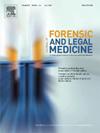Public prosecutors' perspectives on forensic medical information in non-fatal injury cases in the Netherlands: practices, barriers and recommendations
IF 1.2
4区 医学
Q3 MEDICINE, LEGAL
引用次数: 0
Abstract
Public prosecutors in the Netherlands play a crucial role in ensuring that criminal cases are supported by evidence. This study surveyed public prosecutors to examine current practices, barriers, and recommendations related to the use and availability of forensic medical reports in cases involving non-fatal injuries, including the use of injury dating.
Twelve prosecutors with specific injury-related expertise from 8 out of the 10 police regions completed the online survey. Medical information was viewed as contributing to criminal law proceedings. Forensic medical information was considered particularly important in serious cases such as severe abuse, attempted manslaughter, sexual assault, and domestic violence. Information from treating physicians specifically in cases involving permanent injuries or repeated incidents, especially in the context of domestic violence. However, use of the latter was often limited by concerns about quality, completeness, and accessibility.
Key barriers included time constraints, a shortage of forensic doctors, unclear procedures within the police, privacy concerns among treating physicians, and limited awareness among prosecutors. To address these issues, prosecutors emphasized the need for improved training, the appointment of specialized personnel, stronger interdisciplinary collaboration, and the development of clear procedural guidelines.
In conclusion, this study offers concrete recommendations to enhance the integration of forensic medical expertise into criminal proceedings, contributing to a more effective, efficient, and equitable judicial process.
荷兰检察官对非致命伤害案件中法医信息的看法:做法、障碍和建议。
荷兰的检察官在确保刑事案件有证据支持方面发挥着关键作用。这项研究调查了检察官,以审查在涉及非致命伤害的案件中使用和提供法医报告的现行做法、障碍和建议,包括使用伤害日期测定法。在全国10个警区中,有8个警区的12名检察官完成了在线调查。医疗信息被视为有助于刑事诉讼。在严重虐待、过失杀人未遂、性攻击和家庭暴力等严重案件中,法医信息被认为特别重要。治疗医生提供的资料,特别是涉及永久性伤害或重复事件的案件,特别是在家庭暴力的情况下。然而,后者的使用经常受到质量、完整性和可访问性的限制。主要障碍包括时间限制、法医短缺、警方内部程序不明确、治疗医生对隐私的担忧以及检察官的认识有限。为了解决这些问题,检察官强调需要改进培训、任命专门人员、加强跨学科合作和制定明确的程序准则。最后,本研究提出了具体建议,以加强将法医专业知识纳入刑事诉讼,促进更有效、更高效和更公平的司法程序。
本文章由计算机程序翻译,如有差异,请以英文原文为准。
求助全文
约1分钟内获得全文
求助全文
来源期刊

Journal of forensic and legal medicine
MEDICINE, LEGAL-
CiteScore
2.70
自引率
6.70%
发文量
106
审稿时长
57 days
期刊介绍:
The Journal of Forensic and Legal Medicine publishes topical articles on aspects of forensic and legal medicine. Specifically the Journal supports research that explores the medical principles of care and forensic assessment of individuals, whether adult or child, in contact with the judicial system. It is a fully peer-review hybrid journal with a broad international perspective.
The Journal accepts submissions of original research, review articles, and pertinent case studies, editorials, and commentaries in relevant areas of Forensic and Legal Medicine, Context of Practice, and Education and Training.
The Journal adheres to strict publication ethical guidelines, and actively supports a culture of inclusive and representative publication.
 求助内容:
求助内容: 应助结果提醒方式:
应助结果提醒方式:


